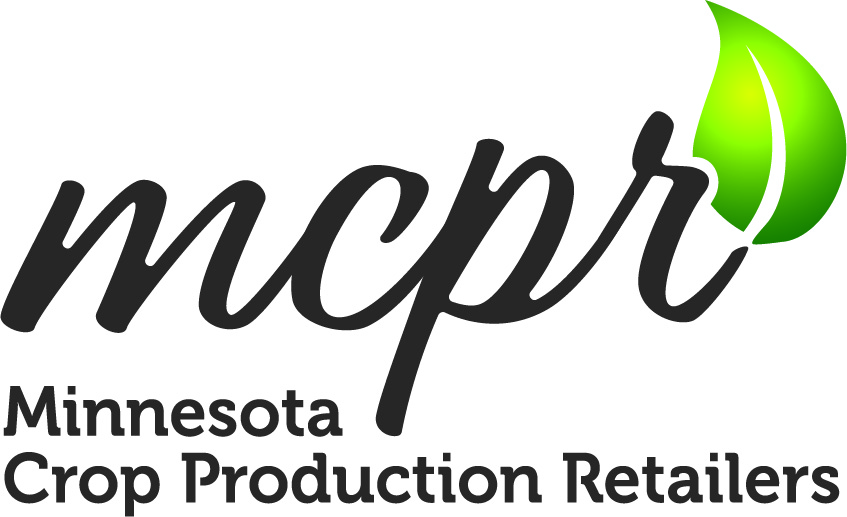MCPR hosts legislative leaders, MDA staff during UFC tour
Seeing is believing.
That’s why the Minnesota Crop Production Retailers (MCPR) hosted a tour Aug. 19 for a bipartisan group of state and federal legislators at United Farmers Cooperative’s (UFC) Brownton facility.
Founded in 1915, UFC boasts 13 locations and serves roughly 285,000 acres in a 100-mile radius. The Brownton location is home to 53,000 tons of dry storage and 3.5 million gallons of liquid storage, making it an ideal location for legislators to witness the conscientious stewardship of the agriculture industry.
“The value of an event like this just always comes back to them seeing what’s really out in the real world,” said MCPR Secretary Brian Meyer, who works for Central Region Coop. “It’s a chance for them to be hands-on with the people running the show and seeing firsthand from the farmers and people in the industry what they need to be working for.”
And witness they did.
The group toured the facility’s crop protection and fertilizer storage sites and learned about the myriad policies and procedures in place to diligently handle and apply products. Toward the end of the tour, Rep. Dawn Gillman commented on the impressive strides the ag industry has made to be as accountable as possible.
“Compared to a hundred years ago, farmers are a lot more responsible,” she said. “The efficacy is incredible.”
Providing legislative leaders with a new perspective of the agriculture industry was exactly what the doctor ordered.
“I think it’s always kind of shocking to them that we do have very progressive equipment and very progressive mindsets when it comes to technology and how we’re using and placing things,” said MCPR District 1 Director Ashley Runholt, with Cottonwood Co-op Oil Co.
Later that afternoon, attendees made their way down the road to Winthrop, where they escaped the heat of the day at UFC’s headquarters and engaged in constructive conversations. In attendance was a conglomeration of state and federal legislators including U.S. Rep. Brad Finstad and MN Reps. Bobbie Harder, Luke Frederick and Glenn Gruenhagen. Minnesota Department of Agriculture (MDA) Commissioner Thom Petersen also attended, in addition to several MDA staff.
Rep. Harder kicked off the legislative briefing with a welcome, highlighting that her husband, Neal, has been a UFC employee for over 40 years.
“We are weathering the ups and downs of agriculture,” said Harder, who farms with her husband, growing corn and soybeans. “We do need policies in Minnesota that will help all types of producers and supporting businesses in agriculture so we can survive and thrive.”
With the entire agriculture industry, including MCPR board members, sitting on pins and needles waiting for the new Farm Bill, it wasn’t a surprise that it was at the top of minds during the discussion in Winthrop. Currently, the 2018 Farm Bill has been extended with the hope that the next Farm Bill passes by year’s end. Rep. Finstad, who sits on the House of Representatives Committee on Agriculture, gave his outlook on the proposed Farm Bill, which has passed out of committee and awaits a vote on the House floor in Sept.
“As it stands in the House, we have a 900-page bill that you all could go look at right now that we passed in a bipartisan way – Democrats and Republicans alike worked on it,” Finstad said. “We have a bill that strengthens crop insurance. It also extends the opportunities for young and beginning farmers to buy more affordable product for a longer rate because we know the inputs and the entryway into farming is expensive, so we have to create more tools for young farmers.”
Finstad also touched on the CRP improvements and FSA program loan limit expansions included in the House’s version of the Farm Bill, along with increases to international trade programs.
“We’re charged with feeding and fueling the world,” Finstad said, “so in the Farm Bill we’ve doubled money for trade promotion programs.”
Hosting events like the UFC Brownton tour and legislative briefing advance MCPR’s mission to support regulatory and legislative initiatives which benefit retailers, manufacturers, distributors and custom applicators of crop production inputs.
“One of the most important aspects of the day was the open communication in a true bipartisan effort to help with what citizens need and want, especially in rural America,” Runholt said. “The value of this event is showing what is seemingly a private industry to the people that make key decisions in our government. They witnessed firsthand how progressive we are in this industry.”
